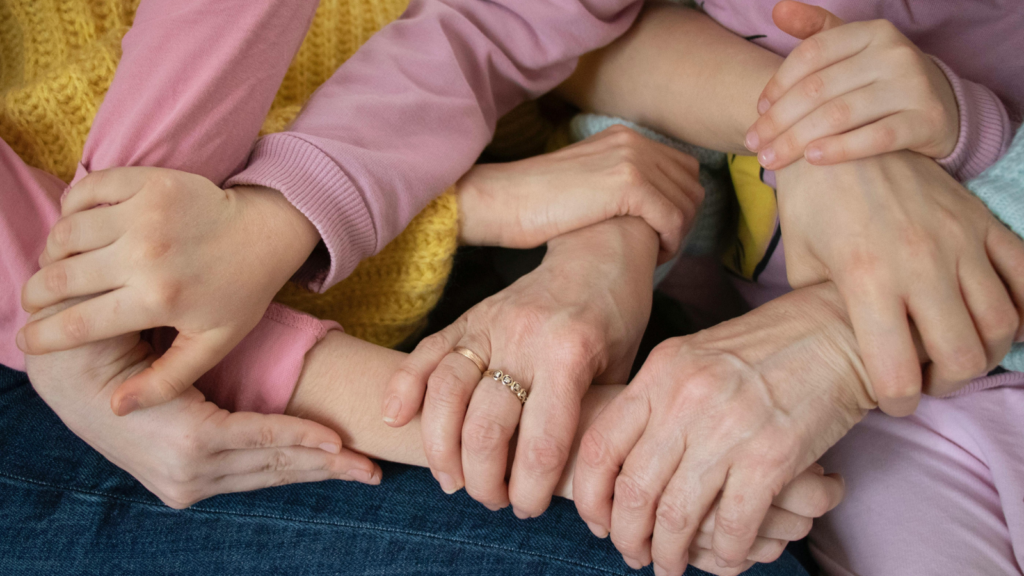Today’s world is complex and new technologies offer unprecedented progress and change our way of work and life patterns rapidly. Like many parents I am excited about the opportunities on offer today. At the same time I feel there is much to worry about when it comes to raising children in this fast changing environment. We live in a society which pays enormous attention to economic growth and the wellbeing of our economy. Mass consumerism and adver-teasing continues to influence children’s values, beliefs and health. Parents and society must be aware and stand up to defend the best interest of children. Isn’t it time to establish an economic thinking that enables us to achieve an economy which cares about the wellbeing of people and works for the benefit of society?
The Economist Kate Raworth has written well about this. In her “Doughnut economics” she reframes the economy and invites us to enter an economic framework which she calls “doughnut.” She depicts the economy as a doughnut and designs two concentric circles wherein a society has to stay and to develop. The doughnut’s inner ring – its social foundation of human rights – sets out the basics of life on which no one should be left falling short. Those basics include food, water, energy, education, healthcare, housing, decent work. Below the inner ring there lie shortfalls in human wellbeing, faced by people in our society who are left behind. Those people are usually lacking food, education, income and rights.
The doughnut’s outer ring – the ecological ceiling – sets out the planetary boundaries as warning signs in the field of climate change, biodiversity loss, chemical pollution and air pollution. If we go beyond the outer ring of the doughnut, the ecological boundaries, we are putting pressure on the planet and destroying it.The ecologically safe and socially just space for humanity lies in between the two rings of the doughnut.
Raworth’s compelling vision is a great starting point of a shift in economic thinking, away from the endless GDP growth which is needed to pave the way for an economy which cares for the wellbeing of people. The doughnut economics offer us an alternative roadmap, an economic model that meets the needs of all within the means of the planet. It is clear that today we are far out of balance transgressing both sides of the doughnut. Therefore we need to further explore this innovative vision and the ways to make it come true. For me, the implementation of the doughnut economy must go hand in hand with strong social policies to ensure all families, without discrimination, have access to sufficient resources, care services and time.
All over the world, families are the primary caregivers. Ideally, the care provision, may it be child or elderly care, should be balanced between the families, the state, the market and the non-for-profit sector. But reality shows clearly that families are under huge pressure as they carry out the bulk of care work (UN Women 2019-2020). Within families, women bear a disproportionate burden of this care (Eige 2019). Worldwide women and girls spend 12,5 billion hours a day in unpaid care work. This “hidden engine” of the world economy keeps our families, societies and markets going and represents an invisible contribution to the world economy of at least 10,8 trillion dollars (9.8 trillion Euros) a year. (Oxfam 2020)
It is time to join forces to enter the doughnut and build an economy which makes this invisible work visible and fosters gender equality families and societies.
A crucial first step towards this goal has recently been taken at European level with the adoption of the Work-life balance directive. This directive offers all families opportunities to better reconcile their work and family lives and reduce gender inequality in families. It is a milestone for women, men and children alike. After the adoption at European level, it is now a powerful instrument in the hands of the EU Member States. They need to invest and guarantee all parents the right to care by introducing in their national legislation adequately paid family leaves. Well-paid paternity and parental leaves all over Europe are key to building an economy which cares and encourages men to “share the care” and ultimately close the gender care gap.
_____________________________
**DISCLAIMER: All opinions in this article reflect the views of the author, not of COFACE Families Europe**
About the author:
Annemie Drieskens holds a Masters degree in Law. She is for over 30 years actively involved in social policy and especially family policy as member of the board of the Gezinsbond, the largest family organisation in Belgium. Since 2012 she is the President of COFACE Families Europe





